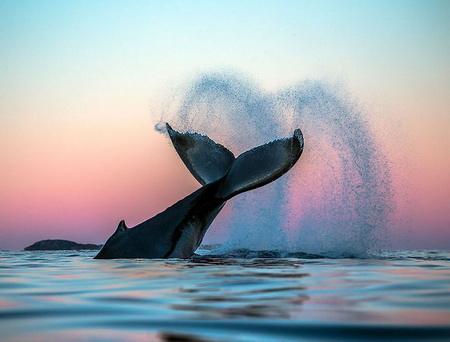University of London researchers theorize that there may be some correlation between the severity of skin damage and the amount of time spent at the ocean’s surface, which varies based on whale species.
倫敦大學(xué)的研究人員推理說,鯨魚曬傷的程度可能與它們在海面上暴露的時長有關(guān),而海上暴露時長又會因鯨魚種類而異。
Biopsies of skin samples indicated evidence of DNA damage in the deepest layers of the whales’ skin cells.
鯨魚皮膚樣本的活組織檢查顯示,鯨魚皮膚細(xì)胞最深層處的DNA有損傷跡象。

Researchers concede that there is little hope of reducing these damaging affects within the next several years.
研究人員承認(rèn),想在未來幾年降低這些有害影響的希望渺茫。
They can only hope that whales’ cellular repair mechanisms can adjust to offset this damage.
他們只能希望鯨魚的細(xì)胞修復(fù)機(jī)制可以調(diào)整并修復(fù)這些損傷。
Will skin damage in whales lead to skin cancer as it does in humans?
鯨魚皮膚受損是否也會像人類一樣發(fā)展為皮膚癌呢?
Could whales adapt to this increased UV radiation by perhaps, getting “suntans”?
鯨魚能否通過曬黑來抵御逐漸增強(qiáng)的紫外線呢?
These are the types of questions that will be taken into consideration in future studies.
這類問題將被列入未來的研究范圍內(nèi)。
譯文為可可英語翻譯,未經(jīng)授權(quán)請勿轉(zhuǎn)載!












